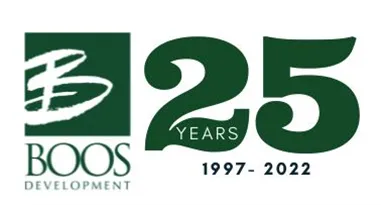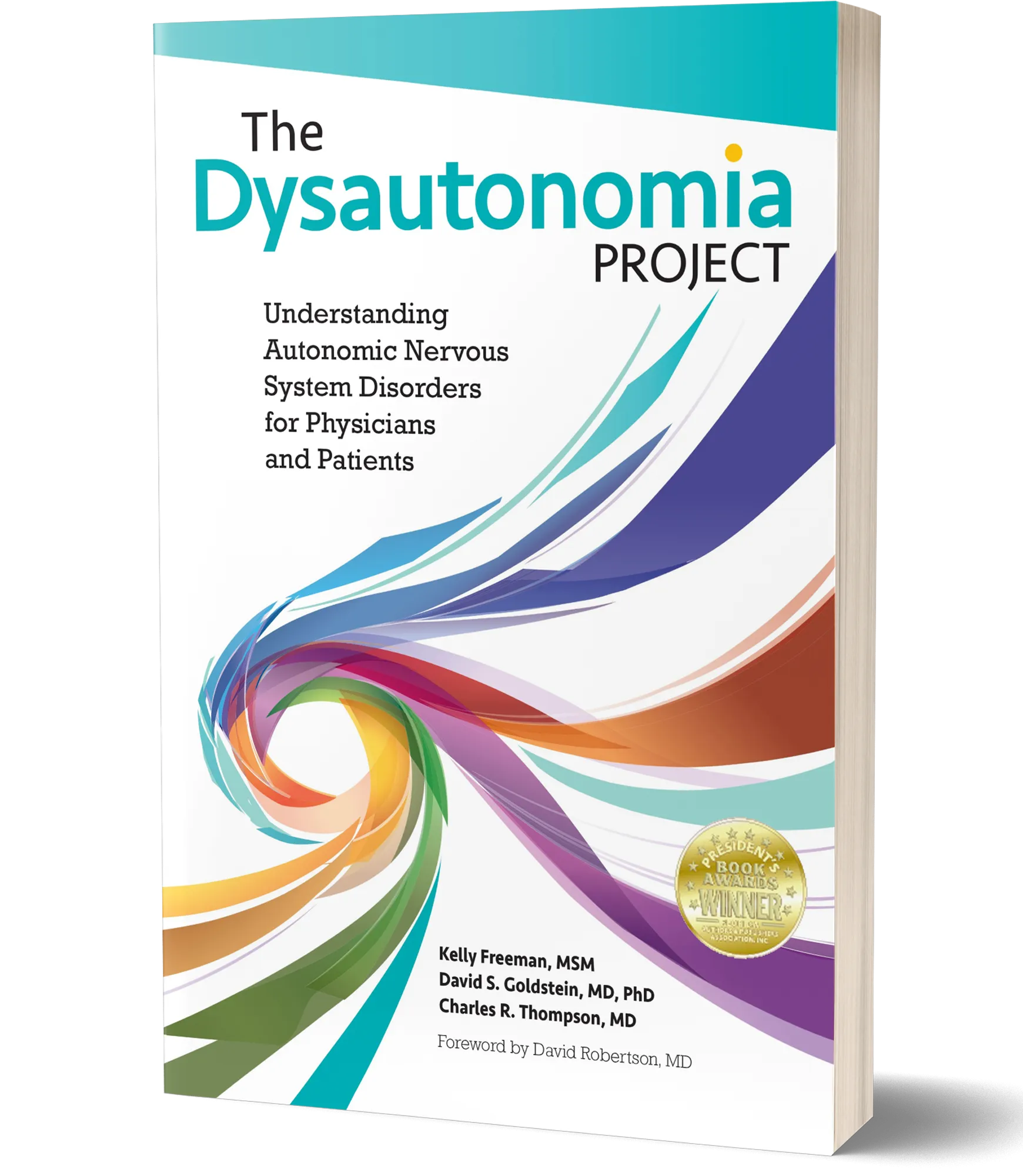Patient Assessment Tool
Patients
You're not in DYS alone
DYS is real.
The Dysautonomia Project is here for you.
"Before we begin, I will tell you that nothing you say about your symptoms will surprise me.”
Dr. Randy Thompson’s first words to Kelly Freeman (TDP Founder), at her initial appointment at the Center for Autonomic Dysfunction.
No matter where you are on this journey, there’s a path and hope for you.
Undiagnosed
Dysautonomia may be one of the most often overlooked and misdiagnosed conditions of all time, making the goal of getting a correct diagnosis the first battle for the patient and family. If you’re dealing with the frustration of misdiagnoses on top of the pain and life changes brought on by your symptoms, you’re not alone. TDP is here to help you in this battle and guide you through the steps you need to take. It starts by knowing the symptoms of dysautonomia and answering the question: Does this sound like me?
Recently Diagnosed
For some, being diagnosed with an autonomic disorder may bring a certain amount of relief, especially if they’ve been told “dys” was all in their head. Now that you have a name for what you’re experiencing, it’s time to learn everything you can about dysautonomia because education is the number one treatment. The next steps you take are critical. If you’re a recently diagnosed patient, you don’t have to navigate your diagnosis alone and in the dark. Let us walk with you.
Experienced Patients
Living with dysautonomia for any length of time means knowing the ups and downs of trying new treatments and the frustration of managing symptoms that may change from one doctor’s appointment to the next. We know this isn’t easy. If you’ve felt discouraged, you aren’t the first. But there is hope. There are patients who have gone before you. There is research being done. And there are things you can do to make the most of your treatment plan and the life you’re now living even if that life looks different than the one you expected.
Pediatric Patients
There’s nothing scarier than watching your child suffer with multiple unexplained symptoms and not knowing how to help them. As with adult onset dysautonomia, knowing the symptoms of dysautonomia is the place to start. These include the three main signs: Dizziness, symptoms in multiple organ systems (i.e., gastrointestinal, cardiac, neurological, pulmonary), and abnormal orthostatic vitals. Does this sound like your child? If you suspect your child has an autonomic disorder or they’ve already been diagnosed, we can help you navigate this unknown territory.
TDP Autonomic Disorders Assessment.
This free, educational assessment allows undiagnosed patients to screen their symptoms to determine if they have a higher or lower risk for an autonomic disorder and diagnosed patients to track their symptoms. Patients can print a report that summarizes their symptoms and take it to their provider. We encourage individuals to repeat this assessment in the future to identify trends in health by saving a copy of this assessment report, and review the results with your health care provider.
Five Things Patients Need to Know about DYS

Types of Dysautonomia
Hear what patients are saying
I call myself a Professional Patient. I have learned that you must advocate for yourself; fight to find the right doctors and support systems; and demand to be seen as a person, not a disease. It took FIVE YEARS to find a doctor who would challenge the insurance companies and get me life-changing infusions. I lost those years, but I learned how to make the healthcare system work for me. It is not the life I dreamed of; but it is beautiful.
Bethany, 41
Time to Diagnosis: 9 months - #1 Symptom: Nausea

April 22, 2021, is a date that is clear in my head because that is the day that I had a doctor tell me “you have been sick for too long, we are going to figure this out.” I had been sick for 12 years at this point and had been fighting for answers for almost as long. It did not matter what I said, how bad I felt, or who I brought with me - every other doctor had blown me off. After 12 years of fighting, I was finally diagnosed with POTS. After my diagnosis, The Dysautonomia Project and their book helped me better understand what was going on with my body.
Jamie, 28
Time to diagnosis: 12 years - #1 Symptom: Dizziness & Fainting

I went to numerous specialists, including gastroenterologists, cardiologists, neurologists, endocrinologists, psychologists, physical therapists, and even psychiatrists/ psychotherapists to no avail. It was not until I found an expert well-versed in autonomic dysfunction that the symptoms began to make sense.
Sharon, 41
Time to Diagnosis: 2 years - #1 Symptom: Chronic Pain

My health began to decline at the end of 2018. My daily symptoms consisted of chest pain, lightheadedness, severe tachycardia, ectopic beats, migraines, near fainting, blood pooling, GI issues, tremors, fatigue, and insomnia. I could not stand without feeling like I was going to collapse. It took over a year for me to be formally diagnosed with Dysautonomia. Prior to this, I had a countless number of doctors tell me that my symptoms were “just anxiety” and mainly “all in my head.” If it weren’t for my own persistence and health advocacy, my diagnosis would have taken years. The Dysautonomia Project helped me tremendously throughout my diagnosis, without them I would not have discovered what was wrong with me. The education and resources that they provide are key for individuals like me.
Erin, 21
Time to Diagnosis: 1 year - #1 Symptom: Chest Pain

I try to count my blessings, instead of my limitations. How we approach illness will define how we mentally process the journey, but sometimes it is hard. I am lucky to have a tribe of people who always remind me I am more than my illness.
Karma
Time to Diagnosis: 8 years - #1 Symptoms: Chronic Fatigue

Balancing my symptoms and the side effects of my medications is difficult. As a first-year medical school student, my conditions have given me purpose and passion for what I study, but the fatigue and uncertainty with flare-ups have been my most constant daily struggles. However, these circumstances also came with growth, which has helped me overcome challenges from and beyond my chronic illnesses with resilience.
Zi, 20
Time to Diagnosis: 18 years - #1 Symptom: Nausea

I am a 57-year-old woman who has had dysautonomia symptoms since childhood. At the time, in the 1970’s, no one knew what dysautonomia was and I was treated as an anxiety patient. It was not until 2017 that a Cardiology PA diagnosed me with Inappropriate Sinus Tachycardia. In 2018, I saw an endocrinologist who referred me to a cardiologist for a tilt table test and I was also diagnosed with POTS. I cried after my diagnosis – I finally had the answers I needed after years of suffering.
Cheryl, 57
Time to Diagnosis: 36 years - #1 Symptom: Racing heart & chest pain

Dysautonomia robs you of being reliable. It complicates other illnesses and makes taking certain medications impossible. I am steroid dependent and as my dysautonomia has changed so much over the last 20 years, it makes me nervous for the challenges I may face in the future. I have always managed (with an amazing support system), so I know I will make the best out of any situation. I am so happy there are organizations like The Dysautonomia Project to bring awareness and understanding.
Brenna, 37
Time to Diagnosis: 10 years - #1 Symptom: Brain Fog
































